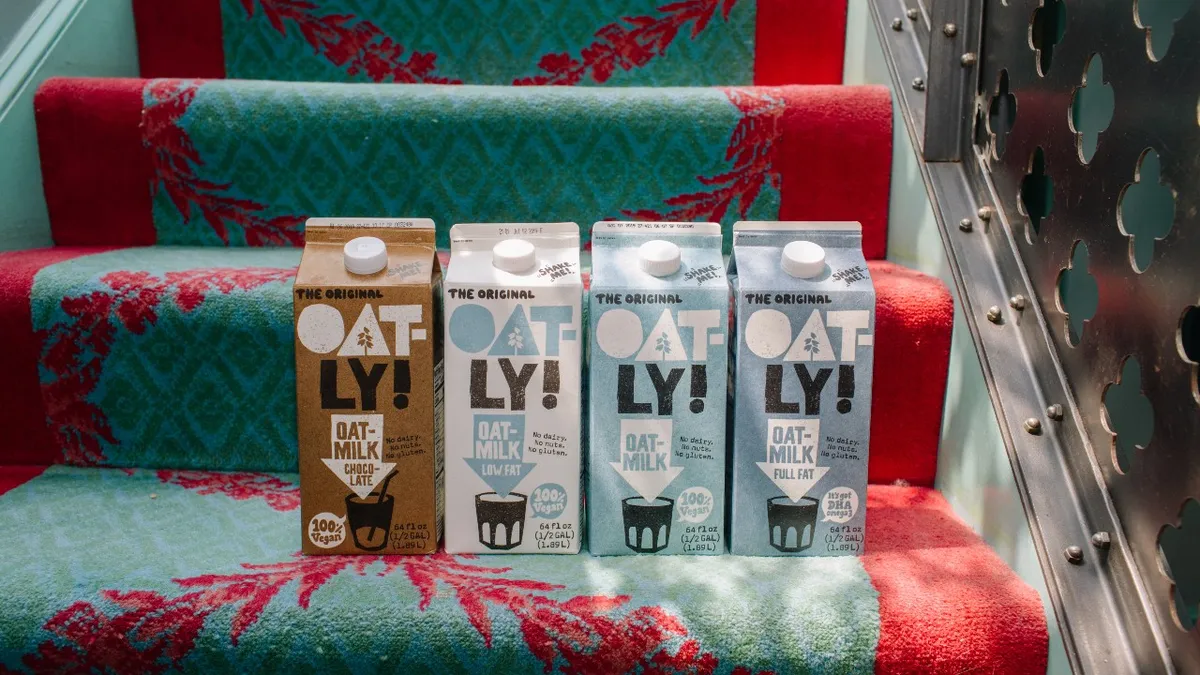Dive Brief:
- Oatly will expand its sourcing options after poor harvest conditions strained the supply of oats, CFO Christian Hanke said on a Q4 earnings call this month.
- The plant-based milk producer has begun increasing prices to offset higher costs for raw materials worldwide, though Hanke says the company has enough "oat and other raw material contracts and supply in place" to meet its growth expectations for 2022.
- Drought conditions and equipment delays among suppliers contributed to raw material shortages, Hanke said. Rail shipping delays due to difficult weather conditions are expected to exacerbate supply problems in the upcoming quarter.
Dive Insight:
Drought conditions last year pushed North American oat harvests to near-record low levels, threatening the supply of a popular ingredient used in plant-based milk.
U.S. oat production declined 39% last year from 2020, with harvested acreage at a record low 650 thousand acres, according to the National Agricultural Statistics Service. Canada, a major U.S. oat supplier, saw its smallest oat crop since 2010, according to Agriculture Canada.
Rail shipping issues have also added to supply woes. Floods in Western Canada at the end of last year washed out rail lines, and railroads were unable to meaningfully make progress on the resulting backlog due to a cold snap at the beginning of 2022.
"We're going to have a very, very busy first quarter here once we get some good weather behind us," James Cairns, senior vice president of rail centric supply chain for Canadian National Railway, said on an earnings call in January. "You think about the grain, you think about the coal, you think about the international imports, they're all there ready to move."
Rail constraints come as Oatly already expects lower production volumes in the first quarter due labor and raw material challenges.
Supply challenges have pushed up oat prices. The USDA's Economic Research Service projects the average price of oats in 2021/2022 season to hit $4.20 per bushel, which would top the 2012/2013 record of $3.89. Oatly is paying anywhere from 8% to 50% more for oats depending on the region.
The company has been rapidly building out manufacturing capacity to meet demand for oat milk and mitigate the effects of shortages. But high construction costs and supply chain delays have already disrupted those plans, pushing the company to pull back on certain investments.













